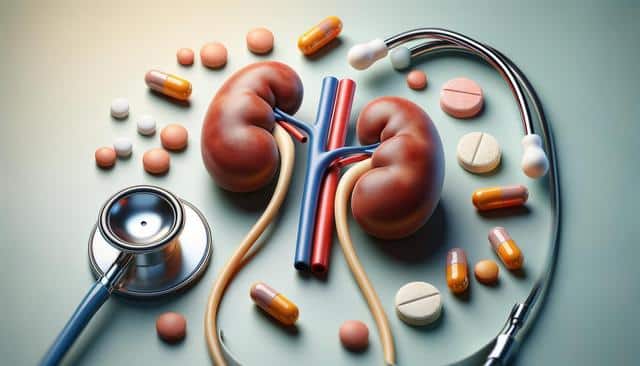Understanding Kidney Disease and Its Dietary Needs
Kidney disease affects how waste and excess fluids are filtered from your blood, making dietary management crucial. Proper nutrition helps maintain kidney function and overall health. A kidney-friendly diet often involves balancing nutrients like protein, sodium, potassium, and phosphorus to reduce the workload on kidneys. Patients with kidney disease should work closely with healthcare professionals to tailor their diet to their specific needs, as each stage of the disease may require different dietary adjustments.
Foods to Include in a Kidney-Friendly Diet
Incorporating nutrient-rich foods that support kidney health is essential for managing kidney disease. Here are some recommended foods:
- Low-potassium fruits, such as apples, grapes, and berries.
- Vegetables like cauliflower, cabbage, and bell peppers, which are low in potassium and phosphorus.
- High-quality proteins from sources such as egg whites and fish.
- Whole grains like rice and barley in moderation.
These foods are beneficial because they provide essential nutrients without overloading the kidneys with excessive amounts of certain minerals.
Foods to Avoid for Kidney Health
To prevent further kidney damage, certain foods should be limited or avoided altogether. These include:
- High-sodium foods like processed snacks, canned soups, and fast food.
- Foods rich in phosphorus, such as dairy products, nuts, and seeds.
- High-potassium fruits and vegetables such as bananas, avocados, and potatoes.
- Red meat and other high-protein foods that may strain the kidneys.
Avoiding these foods can help slow the progression of kidney disease, making it easier to maintain a healthy balance of nutrients in your diet.
Importance of Hydration
Staying hydrated is vital for everyone, but especially for those with kidney disease. Adequate water intake helps the kidneys function efficiently by assisting in waste removal. However, patients with kidney disease should monitor their fluid intake to avoid overhydration, which can lead to complications like swelling and high blood pressure. Consulting with a healthcare provider can help determine the appropriate amount of fluid intake based on individual needs.
Working with Healthcare Professionals
Regular consultations with healthcare professionals are essential for individuals managing kidney disease. Dietitians and nephrologists can provide personalized dietary advice, helping patients make informed choices that support their kidney health. They can also adjust dietary recommendations as the condition progresses, ensuring that nutritional needs are met without compromising kidney function. Open communication with healthcare providers is key to successfully managing kidney disease through diet.
Conclusion
Managing kidney disease involves a delicate balance of dietary adjustments and professional guidance. By focusing on kidney-friendly foods, avoiding harmful substances, maintaining proper hydration, and collaborating with healthcare professionals, patients can better manage their condition and improve their quality of life. Tailoring a diet to fit individual needs not only supports kidney health but also enhances overall well-being.
